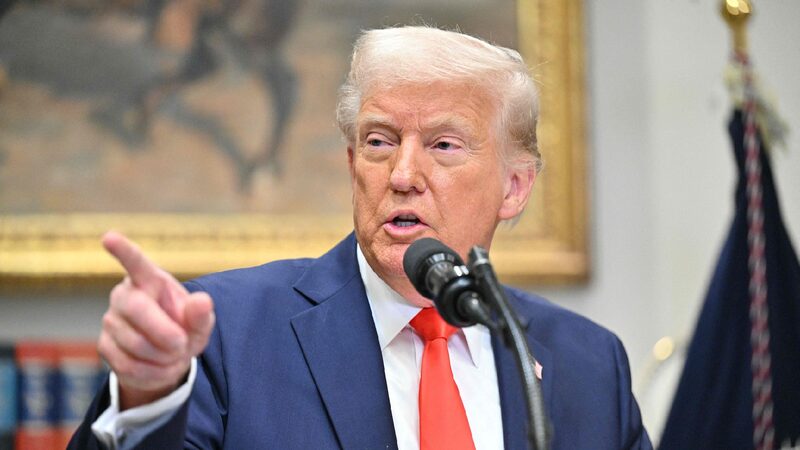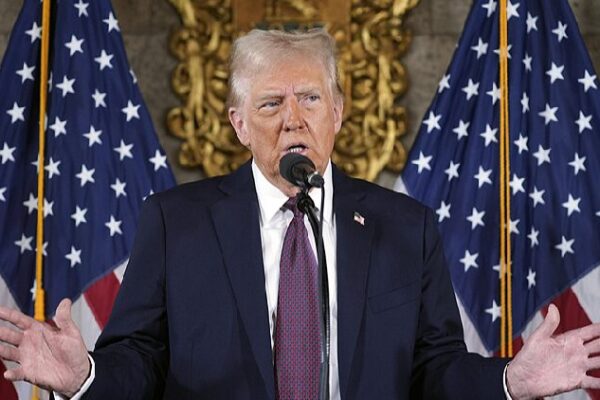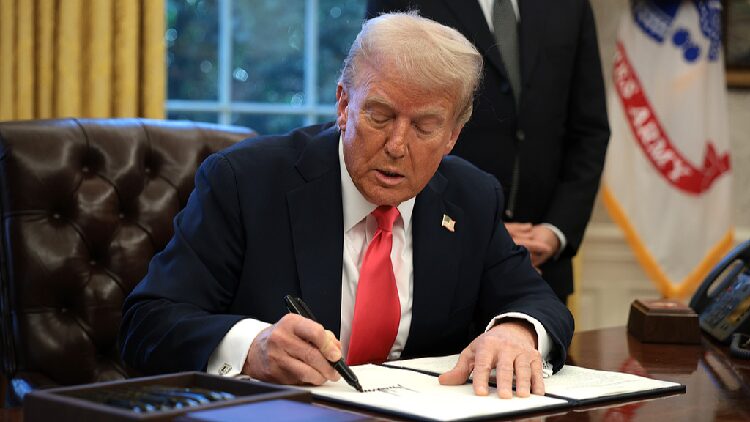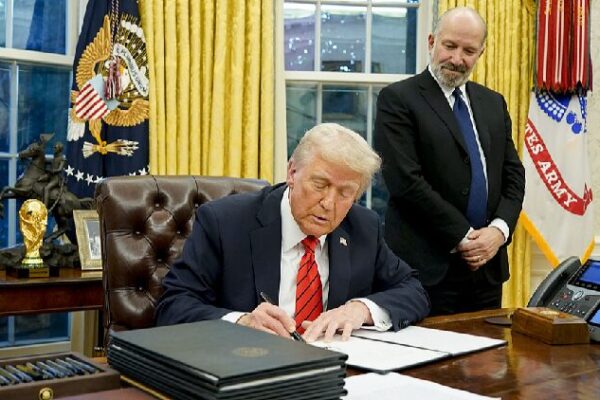Trump’s Tariffs on Mexico and Canada Shake Markets and Stir Tensions
Washington D.C. – U.S. President Donald Trump announced on Monday that new tariffs of 25% on imports from Mexico and Canada will come into effect on Tuesday, March 4. \”Very importantly, tomorrow, tariffs, 25 percent on Canada and 25 percent on Mexico, and that’ll start,\” Trump told reporters at the White House.
The President emphasized that these tariffs could be avoided if Mexico and Canada build their manufacturing plants in the United States. \”What they have to do is build their car plants, frankly, and other things in the United States, in which case they have no tariffs,\” he said.
Trump also mentioned that reciprocal tariffs on U.S. exports would begin on April 2, escalating trade tensions between the neighboring countries.
Canada Ready to Retaliate
Canadian Foreign Affairs Minister Mélanie Joly responded swiftly, stating that Canada is prepared to retaliate against the U.S. tariffs immediately. \”We know this is an existential threat to us. There are thousands of jobs in Canada at stake. Now, we’ve done the work, we are ready, should the U.S. decide to launch their trade war,\” Joly said.
Canada plans to reinstate a 25% tariff on $107 billion worth of American goods if the U.S. tariffs go into effect. The Canadian government had been engaging in diplomatic efforts to prevent the tariffs, addressing U.S. concerns by appointing a new \”fentanyl czar\” and designating Mexican cartels as terrorist groups.
Natural Resources Minister Jonathan Wilkinson expressed concern over the future of Canada-U.S. trade relations. \”I don’t think we are going back there even if the tariffs are removed,\” Wilkinson stated, highlighting the growing rift between the long-time trade partners.
U.S. Stock Market Takes a Hit
The announcement sent shockwaves through the U.S. stock market. Major indices fell sharply on Monday, with the Dow Jones Industrial Average dropping 649.67 points, or 1.48%, to 43,191.24. The S&P 500 sank 104.78 points, or 1.76%, to 5,849.72, and the Nasdaq Composite Index shed 497.09 points, or 2.64%, to 18,350.19.
\”Whether the stock market can survive this change remains to be seen,\” Chris Rupkey, chief economist at FWDBONDS, commented. \”One way or another, tariffs will be a shock for the economy.\”
Economic concerns are deepening as the Atlanta Federal Reserve’s GDPNow model projected that the U.S. economy would contract at an annualized rate of 2.8% in the first quarter, a sharp decline from a previous estimate.
Investment research firm BCA Research downgraded its recommendation for U.S. equities to underweight. \”In our view, the biggest mispricing in markets now is the ebullient growth expectations embedded in U.S. asset prices,\” the firm stated. \”As these expectations are not met, U.S. equities will underperform even amid a broader risk asset decline.\”
The escalating trade tensions and market instability are raising concerns among young investors and businesses across the Global South, who are closely watching the developments between these major economies.
Reference(s):
cgtn.com








